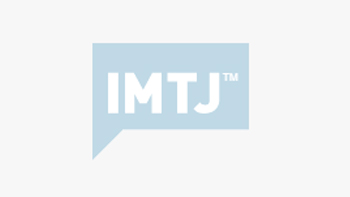The rise in cosmetic medical tourism has put into question the foundation of the patient-doctor relationship and is endangering many who seek low cost surgery, argues the International Society of Aesthetic Plastic Surgery (ISAPS). That the organization is both protecting its members, most of whom only work on domestic customers, and seeks to sell a range of insurances – may make their views less than impartial.
Catherine Foss of ISAPS says, “We see travel agencies brokering surgery for their clients with surgeons they have never met. The patients have no assurance that their surgeon is properly trained or qualified to perform the procedure they will undergo, and all too often little attention is paid to post-surgical care. Complication rates for surgeries performed under these circumstances are alarming.”
The patient safety diamond devised by ISAPS in 2010 bases the concept of safe surgery on four factors: the patient, the surgeon, the procedure and the facility. The patient should be a good candidate for the requested surgery. The surgeon must be properly trained and credentialed. The procedure should be appropriate for the patient. The surgical facility should be an accredited and a proven safe venue with properly trained staff and emergency preparedness. The World Health Organization (WHO) introduced a safe surgery saves lives initiative with a surgical safety checklist that ISAPS endorses.
Catherine Foss of ISAPS explains, “There is a misconception that any doctor can safely perform any surgical procedure. Legislation around the world is changing to reflect a growing concern that patients are being treated surgically by incompetent and untrained individuals who may not even be doctors. Several countries including Italy, Russia, Mexico, Colombia and Canada are leading the way with new regulations controlling who can perform what specific procedure on which patients and in what facility. This is also the case in Denmark, a front-runner in strict regulation of all private medical clinics and surgical facilities – closing some that were sub-standard. Germany and France have had strict regulations for many years. The Comité Européen de Normalisation (CEN), is progressing a Europe-wide effort to set standards that will protect cosmetic surgery patients.”
Surgery Shield, a new insurance policy developed in the UK, endorsed by ISAPS and underwritten by Lloyd’s of London, provides complications insurance for ISAPS member surgeons globally to help protect their patients. A directory of surgeons participating is now available online. A second insurance product for patients is about to be launched in the UK and will expand to other countries later. Cover will include travel insurance and will respond in cases of complications from cosmetic surgery either at home or abroad. This new insurance requires that patients are screened at home before traveling abroad for surgery to be sure they are appropriate candidates for the procedure they seek. The intention is that a consultation with a surgeon at home will provide counseling against travel for complicated surgical procedures. The insurance will only respond if surgical complications of surgery by one ISAPS member surgeon are treated either by that same surgeon or by another ISAPS member surgeon. A patient requiring remedial or corrective treatment once back in their country of residence will be directed to an ISAPS surgeon approved to carry out the specific treatment indicated.
The International Society of Aesthetic Plastic Surgery is the largest international society of individual cosmetic surgeons with 2000 members in 92 countries. Surgeons undergo a strict application process to determine their qualifications to join the society. The ISAPS mission is twofold: the continuing education of surgeons in latest techniques in the field of cosmetic surgery and medicine – and the promotion of patient safety.








 ©2024 All rights reserved LaingBuisson
©2024 All rights reserved LaingBuisson 


